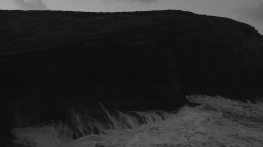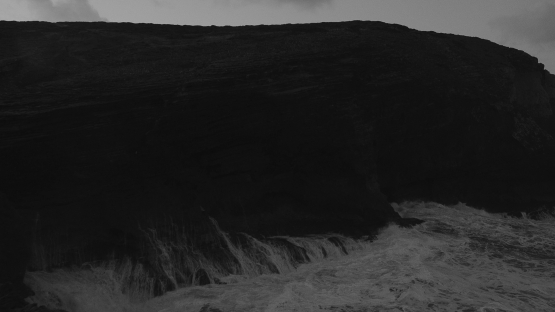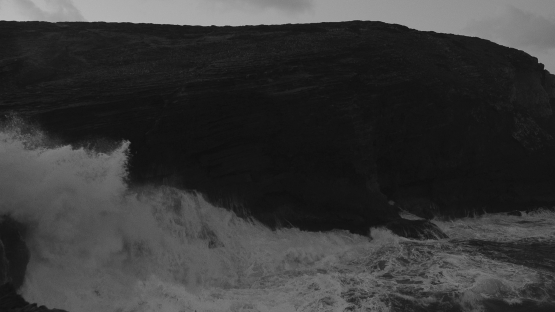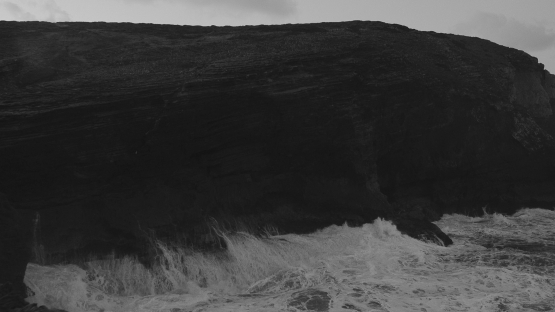João Grama. Hoje o mar não deixa [Today the Sea
Forbids it]
This video work by João Grama examines the
perceptive tensions between seeing and speaking while placing language at the
centre of a web of understanding around the acculturation of the natural.
Over the course of four years, the artist observed and lived among the shellfish catchers of Vila do Bispo and Sagres, seeking to shed light on the profound connection that they establish with the sea, the main source of their livelihood. The film, however, is not an ethnographic object. Rather, it is a work about the ontological outlines of the image and its clash with the complex construction of imaginary worlds. It is also an inquiry into an ancient dialectic between the seeable and the sayable, into the representative boundaries of the image and the appetite for images of all languages.
Although the act of seeing is immanent throughout the film, this immanence does not stem from the power of images. Rather, it is based on the descriptive vocabulary used in the process of revealing through words. The fishermen's voices are inscribed on the image of the night, on what initially appears as an abstract image of words and gradually develops as a descriptive narrative on the sea.
Through a single take, the descriptive presence of the words in the fishermen's conversation about the state of the sea is explored through its historical desire for the visual.
What the film demonstrates is that no image can sufficiently describe what the fishermen see. We can only contemplate the surface of a representation that is lost in the emptiness of everything that we have already seen and believe that we know. Because seeing has become, too literally, the way that we come to know the world.
The landscape stretching out before our eyes is the distension of the word, of the woven mesh of its meanings in the face of an act of contemplation that is an action and not an eloquent state of being present with it.
By confronting us with description in its most superlative form, João Grama is reiterating the importance of filling in the voids in the image, creating an elegy for the evocative power of the word and the primeval meaning of poesïs as a verb of action.
Emília Tavares













